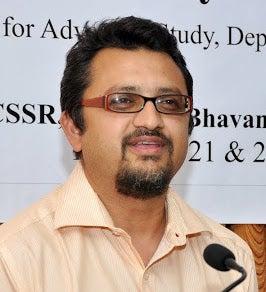Local Funds and Political Competition: Evidence from the National Rural Employment Guarantee Scheme in India
3600 Market Street, Suite 560 (5th floor)
University of Pennsylvania
Philadelphia, PA 19104
About the Speaker:
Abhiroop Mukhopadhyay is an Associate Professor at Indian Statistical Institute, Delhi. His primary specialization is in micro-econometric methods applied to topics in development economics. He has worked on issues related to health, education, and labor in developing countries (especially India). Recent topics of research include economic effects of HIV-AIDS and cancer, the impact of the distribution of human capital on growth, the impact of better school infrastructure on rural schooling attendance, the politics of public policy and effects of public employment programs. He has been published in the Journal of Development Economics and Journal of Economic Inequality, and also contributes frequently to the Economic and Political Weekly. Dr. Mukhopadhyay earned his Ph.D. from Penn State University and is a recipient of the Ratan Tata Senior Fellowship and a CNRS Fellowship for post-doctoral work.
About the Lecture:
The National Rural Employment Guarantee Scheme (NREGS) in India is one of the largest public employment programs in the developing world. It was introduced by the central government, led by Indian National Congress (INC). While its implementation is, in principle, based on demand for work from households, Dr. Mukhopadhyay investigates how political competition affects intra district allocation of funds under the scheme. Using longitudinal data on funds allocated to blocks and elections held at the block level, and addressing the issue of endogeneity by focusing on a subsample of blocks which had close elections, he finds that the funds allocated were 22 percent higher in blocks where the INC seat share was less than 39 percent in the previous election. He will provide a mechanism for the effect by showing that the results are only true when the MP of the district, a member of the body that approves the block fund allocation, is from INC. The lecture is based on the paper of the same title, co-authored with Bhanu Gupta.

